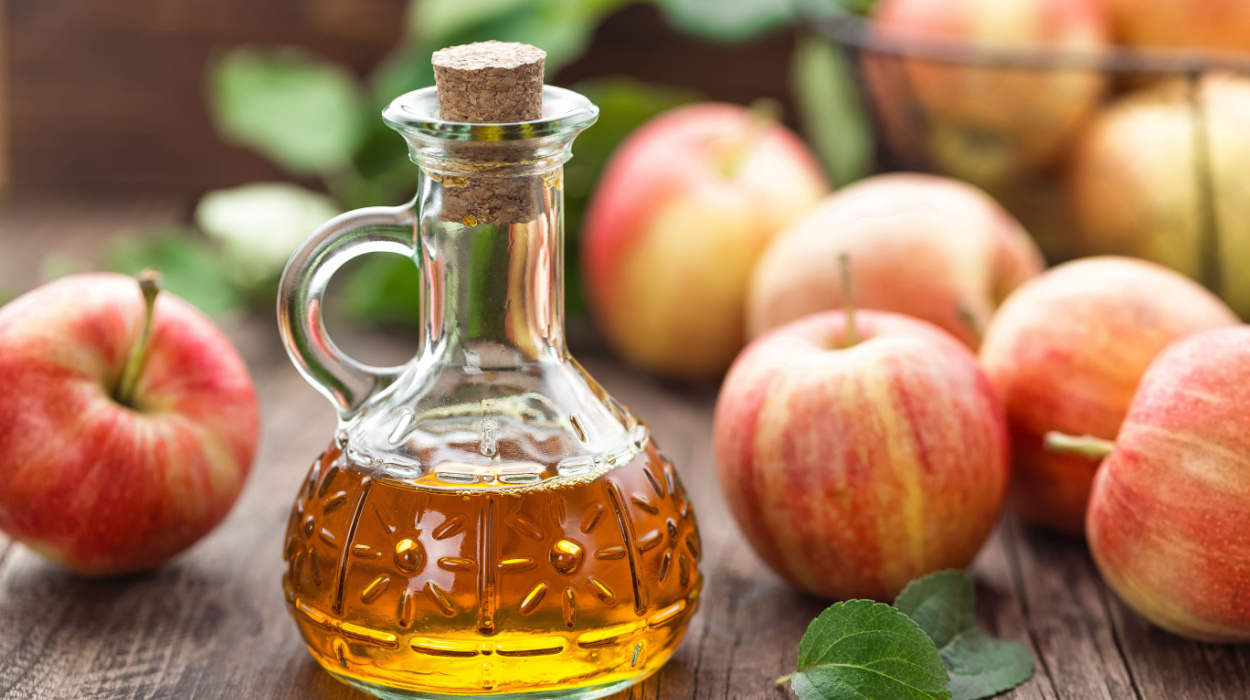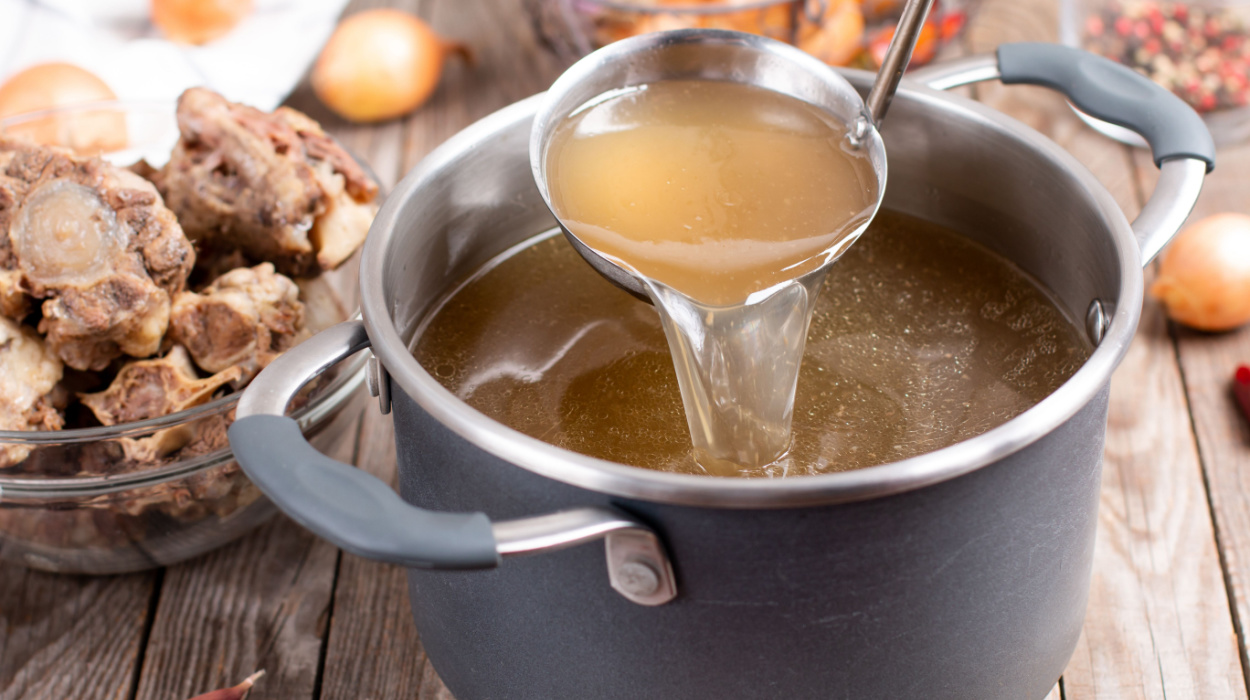Intermittent fasting[1] has become an increasingly popular lifestyle choice for people who want to improve their health and lose weight.
While there is plenty of information available on what to eat during your non-fasting window, many people are left wondering what they can and cannot drink during fasting periods. What about black coffee? Green tea? Is an apple cider vinegar detox OK?
In this article, we will discuss what you can and cannot drink during intermittent fasting, the best drinks for intermittent fasting and drinks to avoid, and answer many common questions about maintaining your fast.
What Can I Drink During Intermittent Fasting Period?
- Water
- Black coffee
- Tea
- Apple cider vinegar
- Bone broth
- Lemon water
What Can You Drink During Intermittent Fasting?
When it comes to what you can drink during intermittent fasting, the general rule of thumb is to stick to zero-calorie and zero-sugar drinks. Having drinks with calories, carbohydrates, or added sugars can spike sugar levels and disrupt your fasting state, negating the benefits of your intermittent fasting plan. However, there are some exceptions to this rule, which we will explore below.
Water
Water is, without a doubt, the most important drink to have during intermittent fasting. It has zero calories and helps you to stay hydrated. Most people who intermittently fast will drink water all day. Drinking water is very important during fasting periods and helps your body remain running smoothly and efficiently.
If you are craving some carbonation, it is also OK to have mineral water, sparkling water, or seltzer water as long as they don’t contain added sugars. Sparkling water is a great drink to break up the monotony of water. Carbonated water alternatives won’t break your fast and will be a refreshing change from plain water.
Black Coffee
For most people, black coffee is a must-have drink during fasting periods. It is a zero-calorie drink and will not break your fasting state. Most people have one cup of black coffee every morning to maintain their fast.
What is important to note about drinking coffee is what you add to it. If you want to drink coffee, it is safe for a fast, as long as it is consumed without added sugars, milk, or cream.
If you need a little flavor in your morning cup of coffee, consider adding a pinch of zero-calorie spices, such as cinnamon.
Tea
It is another top drink choice for many reasons. Tea has its own added health benefits, is calorie-free, and supports overall health and well-being.
Both black tea and green tea have antioxidants,[2] which have been shown to decrease free radicals in the body and reduce inflammation. These added benefits can really boost your overall health while on the intermittent fasting diet.
When consuming tea during fasting, ensure it is brewed from tea bags, leaves, or flakes, and – you guessed it – without any added sweeteners or milk. Herbal teas are another great option that are typically low in calories and caffeine.
Apple Cider Vinegar

It contains a small number of calories. Consuming a water-diluted shot during your fasting period is unlikely to disrupt your fasting state.
Apple cider vinegar has been shown to help increase weight loss, reduce cholesterol levels,[3] and increase body fat loss, making it a potentially beneficial addition to your fasting routine.
It is essential to dilute the apple cider vinegar with water because undiluted vinegar can be damaging on an empty stomach, both to the digestive system and tooth enamel. If you experience any unwanted side effects, such as stomach irritation, heartburn, or an irritated throat, it’s crucial to stop the apple cider vinegar and reach out to your doctor.
If you are not a fan of the shot due to its unique flavor profile but want to reap all of the benefits, there are other ways to get this fantastic beverage into your body. You can try something like apple cider vinegar gummies for a healthy sweet treat during your non-fasting hours. Here are some of the best apple cider vinegar gummies out there!
Bone Broth

It is a controversial beverage to drink during intermittent fasting because it contains proteins that can cause blood sugar spikes and raise insulin levels.
It is best to skip bone broth if you have a relatively short fasting window (4, 6, 8, or 16 hours). However, if you are following a more extended fasting protocol (such as a 24-hour fast), drinking small amounts of bone broth can help to replenish your electrolytes and provide essential nutrients without significantly impacting your fasting state.
Research suggests bone broth is excellent for gut health and has been shown to reduce inflammation.[4]
Lemon Water
Plain water can sometimes be very bland, so adding a squeeze of fresh lemon can spice things up. Lemon water is calorie-free, so there is no risk of breaking your fast. Try adding a wedge of lemon to your water for a flavor boost throughout your day.
What Is Intermittent Fasting?
Intermittent fasting is a diet plan that alternates between eating and fasting periods. This diet includes long periods without eating.
You might want to know does intermittent fasting slows your metabolism. Actually, intermittent fasting does the opposite. Fasting is thought to impact the human body by altering its metabolism.[5] This diet flips a metabolic switch that changes the way we produce energy. In a standard diet, we burn food for energy, but while fasting, we burn fat.
There are many different plans for intermittent fasting. The most popular methods include time-restricted feeding, 5:2, and alternate-day fasting.
Intermittent fasting has many health benefits,[6] including increasing insulin sensitivity, reducing blood pressure, and increasing weight loss.
Drinks To Avoid While Intermittent Fasting
Sugary Drinks, Sodas, And Artificial Sweeteners
Sugary drinks, such as soda, fruit juice, and sports drinks, should be avoided during fasting periods due to their high sugar and calorie content. Sweetened drinks can cause blood sugar spikes disrupt your fasting state, and counteract the benefits of intermittent fasting.
Diet sodas and other sweetened beverages can be tricky. If you drink diet soda, you know they are calorie-free, but they usually contain artificial sweeteners that can cause an insulin spike and break your fast.
Additionally, these drinks can negatively impact gut health and increase cravings for sugary and calorie-dense foods. Best to choose naturally flavored and unsweetened alternatives like sparkling water or tea.
Alcohol
It is usually recommended to avoid alcoholic drinks altogether while dieting. Alcohol should always be avoided during fasting periods due to its high caloric content and potential to increase hunger and cravings.
Suppose you want to indulge in alcohol during your eating window. In that case, it should also be done in moderation, as it can contribute to dehydration and provides little to no nutritional benefit. Consuming alcohol on an empty stomach will also intensify its effects, so be careful if you break a fast with alcohol.
Milk
Milk and milk alternatives, such as almond or soy milk, contain calories, carbohydrates, and natural sugars that can disrupt your fasting state. It falls in the debated category because it can be safe depending on how much you drink.
If you need a small amount of milk or creamer for your coffee or tea, having 1-2 teaspoons or a small splash is okay so the calorie content doesn’t impact your fast. The best is to opt for something like unsweetened almond milk for that little splash of flavor, which has the lowest calorie content.
Coconut Water
Although delicious and packed with lots of essential electrolytes, coconut water contains simple carbohydrates that will break your fast. Also, be aware that some coconut water brands have added sugars that will definitely ruin your fast.
Conclusion
Intermittent fasting can be a great lifestyle choice for improving your health and promoting weight loss. Staying hydrated during your fasting periods is crucial, and understanding what you can and cannot drink is vital to maintaining the benefits of your fasting plan.
You can stay hydrated and energized without disrupting your fasting state by choosing zero-calorie and zero-sugar drinks like water, black coffee, tea, and sparkling water. Avoid high-calorie and sugar-containing drinks such as sodas, juices, milk, and alcohol to ensure your intermittent fasting plan works.
Frequently Asked Questions
Yes! Although it contains calories, for most people it is safe because it will not raise blood glucose levels high enough to prompt an insulin response. This keeps you in a fasting state.
The best drinks to have include water, carbonated water, coffee, tea, and lemon water. There is no debate that these drinks are zero calories and won’t break your fast.
No. Diet soda, although calorie-free, includes artificial sweeteners which can cause a glucose spike. These drinks can break your fast, so are best avoided.
 Expert's opinion
Expert's opinion
